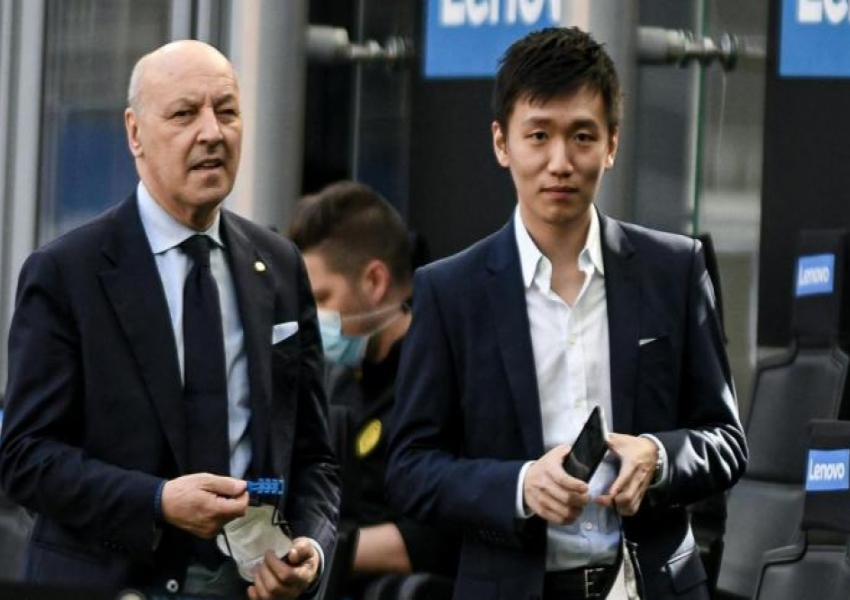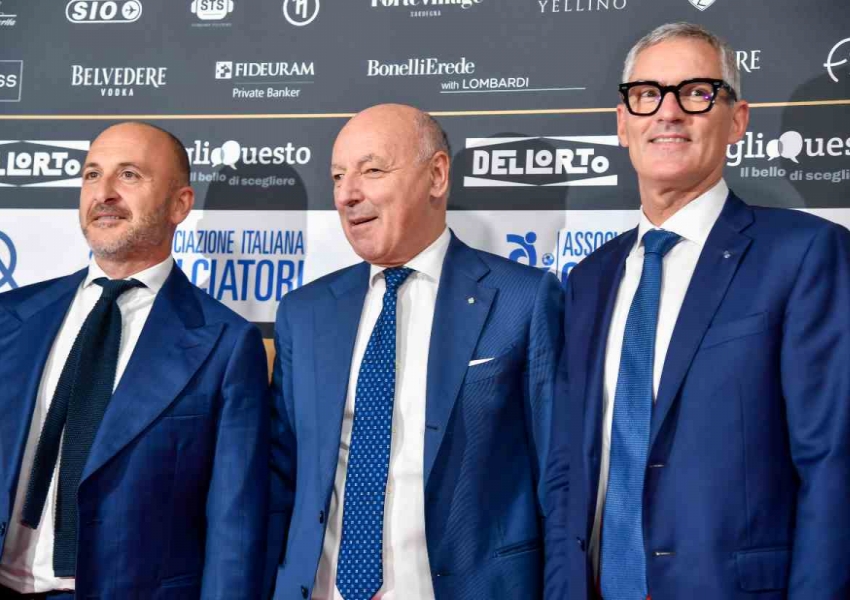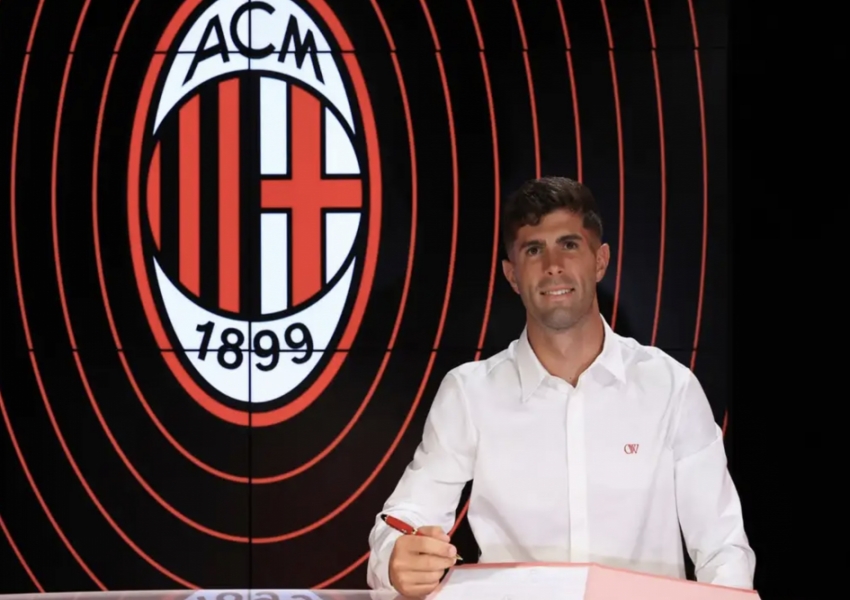Marotta's Dual Roles at Inter: Upholding Zhang's Tradition and Gaining €20 Million Transfer Autonomy—Is Inter Following AC Milan's Path?
A recent report from Calcio Finanza has sparked widespread discussion, particularly concerning Giuseppe Marotta's dual roles at Inter Milan and the implications of his newly granted "expanded authority." On June 4th, following Oak Tree Capital’s takeover of Inter, the Nerazzurri held a crucial board meeting that outlined the new operational framework for the club. Media outlets obtained relevant documents and disclosed some intriguing details about the changes at the club.

Firstly, Marotta’s dual roles are primarily driven by financial considerations. In the official announcement of Marotta’s appointment as the new president of Inter, it was explicitly stated that he would continue to serve as the club's CEO of sport. This arrangement is not about consolidating power but rather a necessary solution to a financial dilemma. Serving as Inter's president carries no salary—a tradition upheld during the tenures of both Erick Thohir and Steven Zhang. However, as an employee, Marotta cannot be expected to work without compensation. As a result, this dual role was introduced to ensure he continues to receive his salary.

It is well known that during the Zhang era, Marotta renewed his contract as CEO until 2027, with an annual salary ranging from €1.5 million to €1.8 million, depending on performance. Although Marotta's role has evolved under Oak Tree Capital’s ownership, his compensation has remained unchanged.

Moreover, Marotta has been granted greater autonomy in transfer dealings, particularly with transactions under €20 million and contract negotiations under €10 million. According to the documents, Marotta, along with Inter’s CFO Alessandro Antonello, can now independently finalize transfers up to €20 million and contracts with salaries below €10 million annually (likely pre-tax), without requiring additional board approval. Additionally, Inter’s sporting director Piero Ausilio has been granted the authority to independently handle transfers up to €10 million and contract negotiations up to €5 million annually.
This development has ignited debate among Inter fans on platforms like X (formerly Twitter) and Meta. Many believe that during the Zhang era, the decision to "delegate power" to Marotta and Ausilio was an effort to respect their expertise and judgment. However, with Oak Tree Capital now in control, the situation has shifted, and Marotta and Ausilio’s autonomy has been formalized in writing. The question arises: does this signify that Inter’s management team has truly gained more independence? The situation is nuanced. After all, Inter is not a financially self-sustaining entity and has yet to achieve profitability. Without addressing the underlying issue of "where the money will come from," the so-called "€20 million transfer autonomy" remains significantly constrained.
Some industry experts view these provisions and restrictions as part of a "salary cap strategy" or a move towards an "AC Milan model." Marotta, along with the other CEOs, can autonomously manage contracts with salaries below €10 million annually. However, contracts exceeding this figure, such as the renewals for Lautaro Martínez or Simone Inzaghi, must be submitted to the board for additional approval, which complicates the process, increases uncertainty, and lengthens timelines. As a result, moving forward, it is likely that Inter’s core players, except for a few key figures, will see their salaries capped at under €10 million pre-tax—a trend that is expected to dominate.
For instance, Denzel Dumfries. Inter's sporting director Ausilio is currently negotiating a contract extension with the Dutch wing-back. Initially, Dumfries demanded a post-tax salary of €5.5 million, plus bonuses, which exceeded Marotta’s authority. Now, his demands have been adjusted to €4 million post-tax, plus bonuses, which falls within Marotta’s remit. This means that once an agreement is reached, the deal can be finalized without further delays, unlike the situations with Lautaro and Inzaghi, where agreements have been reached but not yet officially announced.
If Inter can address the financial question (for example, by generating funds through player sales), the management team’s newly granted autonomy could be effectively utilized to execute strengthening transactions. However, given the rapid changes in the transfer market and the potential for competition with other clubs, the need to increase efficiency means that Inter will likely focus more on transfers under €20 million. Transactions exceeding this amount would require board approval, a process that could cause significant delays and potentially cost Inter their target. This could impact deals like the €40 million signing of Davide Frattesi while making deals similar to the signing of Josep Martínez more common.
In recent years, AC Milan has conducted numerous transactions with transfer fees under €20 million, such as this season’s €18 million signing of Pavlovic and the €13 million acquisition of Morata. Last season, six players—Samuel Chukwueze, Christian Pulisic, Yunus Musah, Tijjani Reijnders, Ruben Loftus-Cheek, and Noah Okafor—were brought in with transfer fees below €20 million each. Today, among football market experts, a player with a transfer value exceeding €20 million joining AC Milan is seen as increasingly unlikely, possibly for similar reasons.
In summary, the written provisions established in the June 4th board meeting will have profound implications for Inter’s squad-building strategy and transfer operations moving forward. The constraints imposed by the need for board approval for higher-value deals and the formalization of transfer autonomy for lower-value deals may push Inter towards a model more closely resembling that of AC Milan. This could lead to a shift in Inter's transfer strategy, focusing on lower-value signings and exerting greater control over player salaries, all while navigating the ongoing financial challenges faced by the club.
Copyright Statement:
Author: mrfootballer
Source: Mrfootballer
The copyright of this article belongs to the author. Reproduction is not allowed without permission.
Recommended Blog
- Inter Milan's Defeat to Al-Ittihad: Boos Reflect Demand for X-Factor, Two Stars Shine Amid Tactical Evolution
- Europa League Qualifying Round Three: Can Ajax Rebound? Braga Hopes for New Signings to Shine
- Champions League Qualifying Round Three: Has Union Saint-Gilloise Bounced Back? Bodo/Glimt and Opponents Battle for Momentum
- Simone Inzaghi's View: Who Are Inter Milan's Main Rivals for the Title Defense? Juventus Tops the List, Beware of Conte's Napoli
- J.League Round 25: Machida Zelvia Hopes for a Boost from New Signing, Gamba Osaka Needs a Spark
- Eliteserien Round 17: Viking Faces an Even More Defensive Opponent, Brann Drifting Away from Title Contention
- Inter Milan Enters Chiesa Transfer Talks: Coach Seeks Alternatives Amid Striker Crisis, Mkhitaryan's Potential Role Shift
- J.League Cup Quarterfinals: Yokohama F. Marinos Aim to Halt Losing Streak, Kashima Antlers Must Overcome Heat
- The Milan Derby: A Clash of Masterminds with €3 Billion vs. €2.24 Billion in Value Growth
- EFL Trophy Group Stage Opener: Barnsley Aims to Extend Offensive Prowess, Bolton Begins Title Defense
Hot Blog
- English Media: Manchester United Will Win Premier League Title in 2028! History Will Repeat Itself, Two Teams Serve as Inspirations
- 0-2 Double Defeat! China National Team Stuck at 6 Points: No More Direct World Cup Hopes, Two Crucial Matches Ahead
- 4 AM Showdown: Barcelona's Revenge Match! Win = 3-Point Lead Over Real Madrid, Key Players Rested
- China National Football Team Drops 13.6 Points, Slips to 94th in FIFA Rankings: Syria Overtakes, New 9-Year Low
- 0-0 Draw! Japan 12 Shots, 2 Missed One-on-Ones: 8 Matches, 20 Points, Group Winner, Saudi Arabia Stuck at 10 Points in 3rd
- 4-1, Double Win Over Brazil! Argentina Celebrates: World Cup Qualification Secured, 4th Team Globally to Qualify
- Real Madrid Got Lazy: 7 Kilometers Less Running in UCL! Two Superstar Spectators While Barça Outruns Them All
- United Go for Glory: Unbeaten in 10, Fueled by Kobbie Mainoo’s Return, Red Devils Eye Europa League Crown
- Champions League Classic: Barça’s Midfield Maestro Worshipped by Thousands After 11.5KM Marathon
- Champions League Semifinal Odds: Barça at 99%, Real Madrid’s Hopes Dwindle to 6%, PSG Cruise Ahead